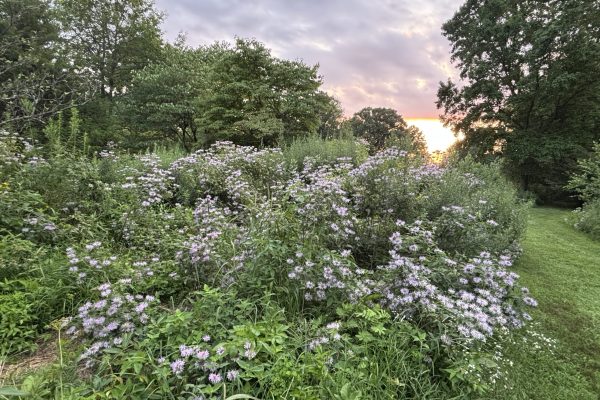I finally came out to my mother in 1994. It was one of the most difficult and frightening things I’ve ever done, and it was painful for both of us. Even so, it left me feeling freer and stronger and very proud of myself, and I felt a powerful need to mark the occasion with a ceremony. So the next Saturday, I went to synagogue, and when I got there, I knew the perfect way for me to celebrate.
I was brought up Orthodox, and in that tradition men and women have very different roles in ritual. Only men are allowed to go up to the Torah during the service and say the blessing over the reading — this is called an aliyah, and it’s considered and honor. The synagogue I attend is now egalitarian, so woman and men have equal roles, and it’s quite common for a woman to have an aliyah, but I had never had one before. But when I got to shul (synagogue), it suddenly hit me that taking an aliyah was just what I was looking for. I was there early, and I approached a woman in the hall and asked her how one went about getting an aliyah. She said, “I don’t know, I think they may have already assigned them.” When she saw my disappointment, she asked, “Was there a particular reason you were interested?” I took a deep breath, nervous of her reaction, and said quietly “I just came out to my mother as bisexual.” And instead of the dismissal that I had half expected, she gave me a great big smile and said, “Mazel tov! That’s wonderful!” And another woman who had been standing nearby overheard us, and came over to say, “How did it go? Do you know about the Bisexual Resource Center? They might have some helpful information for your parents.” And someone else turned to us and said, “What about P-FLAG? They’re pretty good.”
Instead of being cut off from my community, I was surrounded and supported and loved and respected. It felt so wonderful. Everyone made sure I got my aliyah.
My Hebrew name was read to call me up — Gilana Mia bas Abba v’Sara Leah, Gilana Mia daughter of Arthur and Sandie — I felt as though G-d himself were calling upon me. I stood before the Torah in front of the entire congregation, wrapped in a borrowed tallit, just as my father has wrapped me in his when I was a child. My voice was trembling with emotion as I sang the prayer, but it felt to me as though it filled the room and beyond to Jerusalem. Tears filled my eyes so that the Torah in from of me shimmered and the words danced — tears of sorrow for those parts of me I had denied for so long, and tears of joy for that perfect moment that allowed me to finally be all that I am.
As one who can love men and love women and love the Torah too, I did not choose to be a bisexual Jew, but it has brought me a special wisdom and strength. I guess you could call it a blessing.
Even though I know that God is not a gendered person, it’s easier for me, as a bisexual Jew, to envision Him/Her/It as having masculine and feminine sides. Just as I love and appreciate men and woman for their differences and similarities, I love all the faces of God that I can see.
Excerpted from Gilly Rosenthal, “I Can Love All the Faces of God,” in Blessed BiSpirit: Bisexual People of Faith edited by Debra R. Kolodny, Copyright (c) 2000 by Debra R. Kolodny. By permission of The Continuum International Publishing Group.










